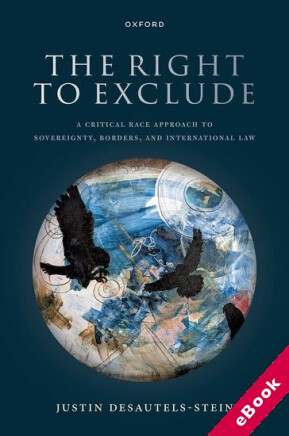
The device(s) you use to access the eBook content must be authorized with an Adobe ID before you download the product otherwise it will fail to register correctly.
For further information see https://www.wildy.com/ebook-formats
Once the order is confirmed an automated e-mail will be sent to you to allow you to download the eBook.
All eBooks are supplied firm sale and cannot be returned. If you believe there is a fault with your eBook then contact us on ebooks@wildy.com and we will help in resolving the issue. This does not affect your statutory rights.
In a world in which racism and xenophobia are endemic, what is the role of international law? To the extent international rules are thought to have any relevance at all, the typical approach characterizes international law as on the side of racial justice. Human rights instruments like the United Nations' International Convention on the Elimination of Racial Discrimination are paradigmatic, offering the world international agreements in which governments are directed to avoid racist behavior and promote antiracist action.
In The Right to Exclude, Justin Desautels-Stein goes against the grain and asks whether certain rules of international law might actually produce structures of racial hierarchy, rather than limiting them. The intellectual fulcrum for this production, Desautels-Stein argues, lies in the ideological structures of sovereignty and property, the right to exclude that is shared in those twinned precincts, and the border regimes that result. Applying critical race theory to contemporary problems of migration, nationalism, multiculturalism, decolonization, and self-determination, Desautels-Stein expounds a theory of "postracial xenophobia", a structure of racial ideology that justifies and legitimates a pragmatic account of racialized foreignness, a racial xenos.